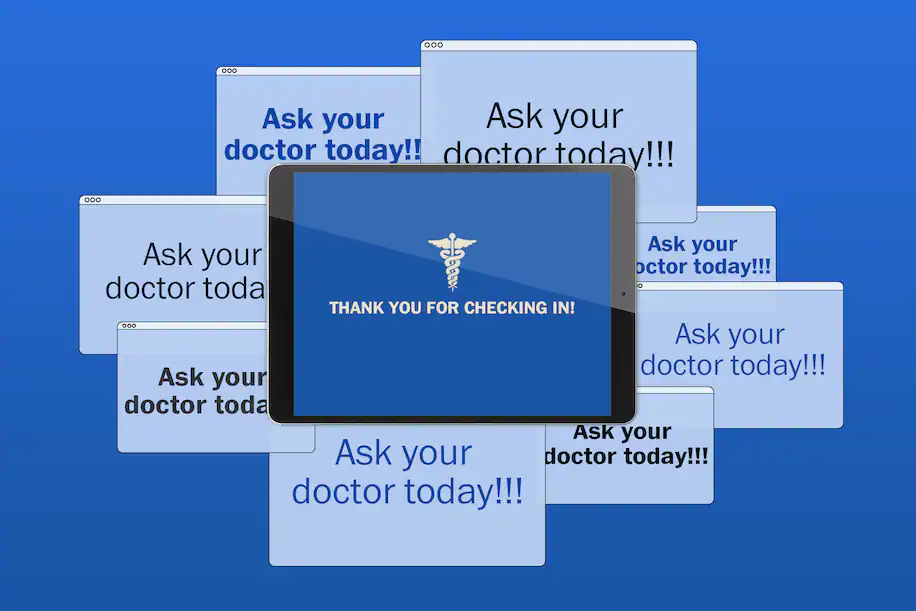The doctor will sell you now.
Your intimate health information may not be as private as you think if you don’t look carefully at the forms you sign at the doctor’s office.
There’s a burgeoning business in harvesting our patient data to target us with ultra-personalized ads. Patients who think medical information should come from a doctor — rather than a pharmaceutical marketing department — might not like that.
But the good news is, you have the right to say no. I’ll show you what to be on the lookout for.
Several Washington Post readers recently wrote to Ask Help Desk about a consent form they were asked to sign while checking in for a doctor’s appointment. Most of us just hurriedly fill out whatever paperwork is put in front of us, but these eagle-eyed readers paused at this:
“I hereby authorize my health care provider to release to Phreesia’s check-in system my health information entered during the automated check-in process … to help determine the health-related materials I will receive as part of my use of Phreesia. The health-related materials may include information and advertisements related to treatments and therapies specific to my health status.”
Here’s what’s going on: A company called Phreesia makes software used by more than 2,000 clinics and hospitals across the United States to streamline check-ins, replacing the clipboard and photocopied forms with screens on a website or app. The company says it was used for more than 100 million check-ins in the past year. Some patients use Phreesia’s software to do early digital check-in at home, while others use it on a tablet at the clinic.
But Phreesia doesn’t just make money by selling its software to doctor’s offices. It also has a business in selling ads to pharmaceutical companies that it displays after you fill in your forms. And it wants to use all that information you entered — what drugs you take, what illnesses you’ve had in the past — to tailor those ads to your specific medical needs
I can understand why pharmaceutical companies might want this. The ads remind you to ask your doctor about whatever drug they’re pushing right before you go into the exam room
You agreed to what? Tax sites want your data for more than filing.
But wait a minute: Isn’t your health information supposed to be private?
“There is less protection than we all might think,” says Arthur Caplan, the head of the division of medical ethics at the New York University Grossman School of Medicine.
The privacy you were thinking about then was who could look at my paper chart,” says Caplan. Now that records are digital, they’ve developed lots of secondary uses.
I asked Phreesia how they’re able to make use of our data under HIPAA. HIPAA. Instead, to opt in. That’s why they want you to tap “I accept” on that form.
You have the right to say no. That’s a privacy argument I also often hear from Facebook and Google.
But still, why would a patient want to say yes?
He says Phreesia’s targeted ads are particularly useful for people with rare diseases, where they’re part of small patient populations. “It’s very, very hard to get information in front of them — potentially lifesaving information,” said Linetsky. “And I think that we offer a privacy-safe and respectful way of doing that.”
You should know what you’re opting into and out of. None of this fine-print stuff.”
Do patients really even know they have the right to decline Phreesia’s ad targeting? The company wouldn’t tell me what percent of patients say no.harvests your health data Doctor check-in software
https://www.rhapp.org/profile/top-gun-maverick-2022-watch-online-for-tv/profile
https://www.bret.bar/profile/top-gun-2-maverick-2022-movie-full-online-free-download/profile


